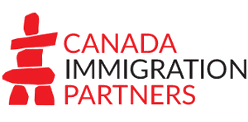Navigating the Express Entry system for Canadian immigration can be a complex process. It requires careful preparation and a clear understanding of the necessary documents.
This article aims to provide a comprehensive guide on the essential documents needed for Express Entry. It’s designed to help potential immigrants prepare their application with confidence.
We’ll cover everything from personal identification to educational credentials. We’ll also delve into language proficiency tests, work experience documents, and proof of funds.
Additionally, we’ll discuss the documents required for accompanying family members. We’ll also provide insights into the process after receiving an Invitation to Apply (ITA).
Whether you’re a skilled worker, a professional, or simply seeking a new life in Canada, this guide will help you navigate the Express Entry system. Let’s get started on your journey to Canadian permanent residency.
Understanding Express Entry
The Express Entry system is a pathway to Canadian permanent residency. It’s an online system that manages applications for three federal immigration programs.
These programs target skilled workers and professionals who can contribute to Canada’s economy. The system uses a points-based approach, known as the Comprehensive Ranking System (CRS), to rank applicants.
Federal Immigration Programs under Express Entry
The three main federal immigration programs under Express Entry are:
Each program has its own set of criteria. Applicants must meet these criteria to be eligible for Express Entry. Understanding these programs can help you prepare the necessary documents for your application.
Preparing Your Documents
Before creating your Express Entry profile, it’s crucial to gather all necessary documents. These documents will provide proof of your identity, education, work experience, and financial stability.
Having these documents ready will make the application process smoother. It will also help you avoid delays in the submission of your Express Entry profile.
Personal Identification Documents
The first set of documents you’ll need are personal identification documents. These are crucial for verifying your identity.
You’ll need:
- A valid passport or travel document
- Birth certificates for you and any accompanying family members
These documents must be valid and up-to-date. Make sure to check the expiry dates before submitting your application.
Educational Credentials and ECA
If you have a foreign degree, diploma, or certificate, you’ll need an Educational Credential Assessment (ECA). This assessment verifies that your education is equivalent to a Canadian one.
You’ll need:
- Your degree, diploma, or certificate
- An ECA report from an approved organization
Remember, the ECA report must not be more than five years old when you apply.
Language Proficiency Tests
Language proficiency is a key factor in the Express Entry system. You’ll need to prove your proficiency in English or French.
You’ll need:
- Test results from an approved language test, such as IELTS or CELPIP for English, or TEF or TCF for French
Your test results must be less than two years old when you apply.
Work Experience and Reference Letters
Your work experience can earn you points in the CRS. You’ll need to provide documents that prove your work history.
You’ll need:
- Reference letters from your employers
- You may also need pay stubs or other proof of employment
Your reference letters should include your job title, duties, pay and dates of employment.
Proof of Funds
Unless you’re currently authorized to work in Canada or have a valid job offer, you’ll need to show proof of funds. This proves that you can support yourself and any family members who come with you.
You’ll need:
- Bank statements
- Letters from banks or financial institutions where you keep money
Make sure these documents clearly show your name and the account balance.
Additional Documents for Express Entry
Apart from the basic documents, there are additional documents you may need. These depend on your personal circumstances and the specific requirements of the Express Entry program you’re applying to.
Police Certificates and Medical Exams
For security and health reasons, you’ll need to provide police certificates and undergo medical exams.
You’ll need:
- Police certificates from countries where you’ve lived for six months or more
- Medical exam results from an approved panel physician
Remember, these documents must be recent and valid at the time of your application.
Documents for Accompanying Family Members
If you’re bringing family members with you to Canada, you’ll need additional documents for them.
You’ll need:
- Their passports or travel documents
- Their birth certificates
- If applicable, marriage certificates or proof of common-law partnership
These documents help verify the identity and relationship status of your accompanying family members.
After Receiving an Invitation to Apply (ITA)
Once you receive an Invitation to Apply (ITA), the real work begins. You’ll need to submit a complete application within 60 days.
This includes all the necessary documents we’ve discussed. It’s crucial to act quickly and efficiently to meet this deadline.
Document Submission Timeline and Tips
Submitting your documents correctly is as important as gathering them. Here are some tips to help you:
- Ensure all documents are translated into English or French.
- Check each document for accuracy and completeness.
- Keep digital copies of all documents for your records.
Remember, the quality of your document submission can significantly impact your application’s success.
Avoiding Common Mistakes
When it comes to Express Entry, small errors can lead to big problems. It’s essential to avoid common mistakes that could delay your application or even lead to rejection.
One common mistake is submitting incomplete or incorrect documents. This can cause unnecessary delays and complications in your application process.
Updating and Correcting Information
If you need to update or correct information in your Express Entry profile, don’t panic. It’s a common occurrence and can be handled smoothly.
Here are some steps to follow:
- Log into your account and select “Update form”.
- Make the necessary changes and save them.
- Review your information for accuracy before submitting.
Remember, honesty and accuracy are crucial in your Express Entry application.
Conclusion and Additional Resources
Navigating the Express Entry process can be complex, but with the right preparation, it’s manageable. Remember, the key to a successful application is having all the necessary documents ready and accurately filled out.
You can learn more about Express Entry and the answers to commonly asked questions at our explainer page.
For additional help, consider consulting with immigration professionals. They can provide valuable guidance and ensure your documents are in order. Also, regularly check the official Immigration, Refugees and Citizenship Canada (IRCC) website for the most current document requirements and updates.











